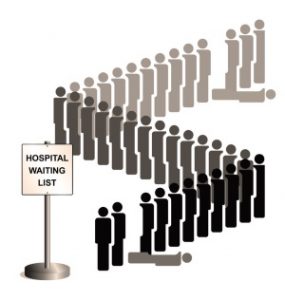If you rely on glasses or contact lenses to help you to see properly then you may be considering corrective laser eye surgery. Over the past few years, laser eye surgery has become an increasingly popular option for those who are looking for a way to correct their vision, with an estimated 15000 people per year choosing to have the procedure in the United Kingdom. However, despite the increasing popularity of this type of treatment, it is not guaranteed to work for everyone and it is not completely free from risk.
If you are considering having this type of procedure then you may want to consider just how safe is laser eye surgery.
The Risks
For most people, laser eye surgery is relatively safe. It is estimated that less than 5% of patients suffer complications from laser eye surgery. The majority of people who do experience complications are only experiencing minor issues; however these issues can still affect that patient’s quality of life, if they are not treated properly.
One of the most common side effects of this type of surgery is dry eyes. Eye drops or artificial tear products may be able to help to reduce the discomfort which is caused by dry eyes.
Glare (halo effects around bright lights) is another common side effect, and is most likely to be noticed whilst driving at night. In some cases, patients have also developed eye infections as a result of the surgery. This can occur if the practice fails to meet minimum hygiene standards, or if the surgeon does not follow standard infection control procedures. Some patients might also contract an infection if they do not follow the correct after care procedures.
There have been a number of cases in the United Kingdom where laser eye surgery resulted in the persons vision being “ruined”.
It is also possible that the surgeon could overcorrect or undercorrect the patient’s vision. If the surgeon undercorrects the vision, it is normally possible to have a second round of surgery to achieve the desired results, however correcting an overcorrection can be much harder to do. If they have overcorrected your vision, you may still need to wear glasses or contact lenses.
At Risk Groups
Certain people are not normally considered to be suitable candidates for laser eye surgery. If you are in one of these groups then laser eye surgery is thought to be a much higher risk for you. You may be advised not to have laser eye surgery if the risk is too high.
Legally all candidates for laser eye surgery should be at least 18 years of age (although most clinics will not treat a patient that is under 21), and they should have had a stable prescription for at least 1 year before the date of the surgery. If your prescription has not stabilised yet, then it is possible that your prescription will continue to change after the surgery and you will find that you need glasses or contact lenses again after the procedure.
Laser eye surgery is also not recommended for people who may be experiencing unstable vision for any other reason, such as those who are taking medication which may cause vision changes. This can include people who are experiencing hormonal changes, including pregnant or breast-feeding women. Other conditions which put you at high risk from the complications associated with laser eye surgery include eye conditions such as glaucoma, cataracts, persistent dry eyes and other eye conditions. Non-eye related conditions which put you into a high risk category include; people who are suffering from immunodeficiency disorders and people who have autoimmune problems.
Medium risk groups of people include; those who only need very minor corrections; people who have very high prescriptions; people who have very thin corneas or large pupils, and people who participate in contact sports where they may be more likely to receive blows to the face. If the eye is unstable after surgery, a blow to the face can cause a vision change at any point in time, even once the standard recovery period has already been completed.
Certain people should also avoid this type of surgery as a condition of their employment. If a surgeon fails to check whether you are in a high risk group before they perform the procedure, then they are putting you in danger. In some cases, it is suitable for members of these groups to have laser eye surgery, but the surgeon must take additional precautions and make sure that the patient is fully aware of the increased risk.
What To Do If You Have Been Negatively Affected By Laser Eye Surgery
If you have suffered negative effects as the result of laser eye surgery, then you may be eligible to make a claim for compensation. Even if you have signed a waiver before you had your surgery then you may still be able to make a claim.
If a surgeon has treated you even though you were not a suitable candidate for a surgery or if they failed follow safe medical practice, then they could be sued for medical malpractice. Other successful claims have arisen from the surgery taking place in an unhygienic environment or problems which have been caused by a lack of suitable aftercare.
If you want to see whether or not you might have a valid claim you can read more on laser eye surgery claims here, or if you are interested in starting a claim then you should give us a call today, or use the Call Me Back form if you prefer. It is best to use a solicitor who has experience in dealing with these claims, because they will have a better understanding of how much the claim may be worth, and how national legislation may affect the claim that you are making.



